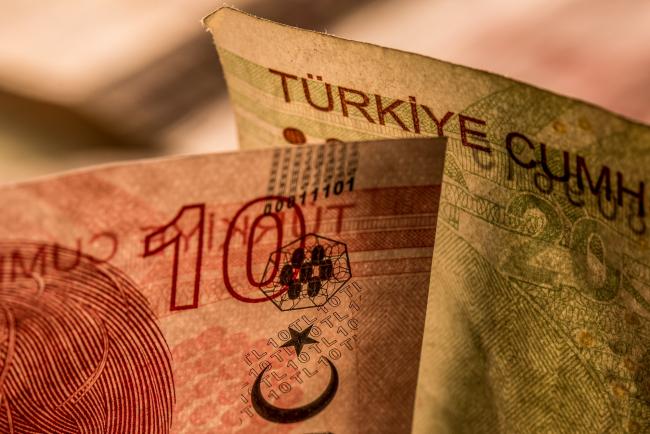(Bloomberg) -- Want the lowdown on European markets? In your inbox before the open, every day. Sign up here.
Turkey told banks to wait one day before settling some large foreign-currency purchases, the latest move to defend the lira as President Recep Tayyip Erdogan’s party seeks to keep control of Istanbul in a controversial rerun of local elections.
The bank regulator told lenders to settle all retail transactions valued at $100,000 or higher one working day later, instead of the current practice of doing it on the same day, according to a document sent to banks on Monday, which was seen by Bloomberg and verified by three bankers. The regulator didn’t immediately have a comment on the move.
The lira didn’t immediately react after posting gains earlier on Monday. The currency was down 0.2% against the dollar at 6.0380 as of 9:05am on Tuesday.
Turkish authorities have become more interventionist in the markets, drawing criticism from investors, after a series of crises turned the lira into one of the world’s weakest currencies.
It’s been battered by escalating tensions with the U.S., and by the economy’s slide into recession after a borrowing binge by Turkish business -- much of it in dollars and euros -- turned sour when the currency crashed last year.
‘Less Liberal’
The turmoil contributed to losses for Erdogan’s party in March local elections -- including its stronghold of Istanbul, the country’s biggest city, where the mayoral vote will be repeated in June after an opposition victory was annulled due to what authorities describe as electoral fraud.
With Erdogan’s opponents in uproar, and the president’s party still in campaign mode, A series of steps have made it harder to bet against the lira. Before the original vote, banks were pressured not to provide liquidity to foreign fund managers seeking to pull out. Last week, Turkey imposed a 0.1% tax on currency sales, the first such charge in more than a decade.
The measures are creating “a gradually less liberal capital account, which is not the ideal signal to send to local retail deposit-holders and foreign investors,” said Inan Demir, an economist at Nomura Plc in London.
Deposit Shift
Regulators have also announced probes into banks including JPMorgan Chase & Co (NYSE:JPM). who’ve been blamed for “misguiding” markets with research that recommended selling the lira. And Turkish authorities are said to be leaning on local banks to buy more sovereign bonds, as the government turns to a widening budget deficit to help pull the economy out of recession.
Output declined 3% in the last quarter of 2018, and it’s forecast to keep shrinking through at least June.
The slide has encouraged Turkish households and companies to turning their savings into dollars and euros. They’ve added about $20 billion in hard-currency bank deposits this year, taking the total to more than $180 billion -- close to a record high.
(Adds lira move in the third paragraph.)
